Table of Contents
Aaron Copland, Piano Variations with Sheet music
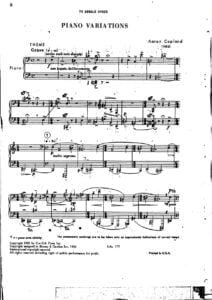
Aaron Copland: American composer
Aaron Copland, (born Nov. 14, 1900, Brooklyn, N.Y., U.S.—died Dec. 2, 1990, North Tarrytown [now Sleepy Hollow], N.Y.), American composer who achieved a distinctive musical characterization of American themes in an expressive modern style.
Please, subscribe to our Library.
If you are already a subscriber, please, check our NEW SCORES’ page every month for new sheet music. THANK YOU!
Copland, the son of Russian-Jewish immigrants, was born in New York City and attended public schools there. An older sister taught him to play the piano, and by the time he was 15 he had decided to become a composer. As a first step, Copland tried to learn harmony through a correspondence course. Haltingly and in an environment not particularly conducive to art, he struggled toward his goal.
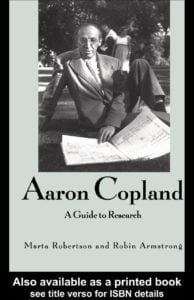
In the summer of 1921 Copland attended the newly founded school for Americans at Fontainebleau, where he came under the influence of Nadia Boulanger, a brilliant teacher who shaped the outlook of an entire generation of American musicians. He decided to stay on in Paris, where he became Boulanger’s first American student in composition. After three years in Paris, Copland returned to New York City with an important commission: Nadia Boulanger had asked him to write an organ concerto for her American appearances.
Copland composed the piece while working as the pianist of a hotel trio at a summer resort in Pennsylvania. That season, the Symphony for Organ and Orchestra had its premiere in Carnegie Hall with the New York Symphony under the direction of the composer and conductor Walter Damrosch.
In his growth as a composer, Copland mirrored the important trends of his time. After his return from Paris, he worked with jazz rhythms in Music for the Theater (1925) and the Piano Concerto (1926). There followed a period during which he was strongly influenced by Igor Stravinsky’s Neoclassicism, turning toward an abstract style he described as “more spare in sonority, more lean in texture.” This outlook prevailed in the Piano Variations (1930), Short Symphony (1933), and Statements for Orchestra (1933–35). After this last work, there occurred a change of direction that was to usher in the most productive phase of Copland’s career.
He well summed up the new orientation: “During these years I began to feel an increasing dissatisfaction with the relations of the music-loving public and the living composer. It seemed to me that we composers were in danger of working in a vacuum.”
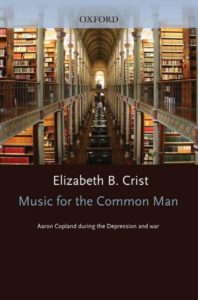
Furthermore, he realized that a new public for modern music was being created by the new media of radio, phonograph, and film scores: “It made no sense to ignore them and to continue writing as if they did not exist. I felt that it was worth the effort to see if I couldn’t say what I had to say in the simplest possible terms.” Copland therefore was led to what became a most significant development after the 1930s: the attempt to simplify the new music in order that it would have meaning for a large public.
The decade that followed saw the production of the scores that spread Copland’s fame throughout the world. Most important of these were the three ballets based on American folk material: Billy the Kid (1938), Rodeo (1942), and Appalachian Spring (1944; commissioned by dancer Martha Graham).
Copland’s sheet music is available for download from our Library.
To this group belong also El salón México (1936), an orchestral piece based on Mexican melodies and rhythms; two works for high-school students—the “play opera” The Second Hurricane (1937) and An Outdoor Overture (1938); and a series of film scores, of which the best known are Of Mice and Men (1939), Our Town (1940), The Red Pony (1948), and The Heiress (1948). Typical too of the Copland style are two major works that were written in time of war—Lincoln Portrait (1942), for speaker and chorus, on a text drawn from Lincoln’s speeches, and Letter from Home (1944), as well as the melodious Third Symphony (1946).
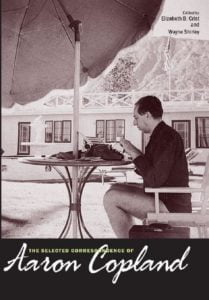
In his later years, Copland refined his treatment of Americana: “I no longer feel the need of seeking out conscious Americanism. Because we live here and work here, we can be certain that when our music is mature, it will also be American in quality.” His later works include an opera, The Tender Land (1954); Twelve Poems of Emily Dickinson (1950), for voice and piano; and the delightful Nonet (1960).
During these years, Copland also produced a number of works in which he showed himself increasingly receptive to the serial techniques of the so-called 12-tone school of composer Arnold Schoenberg. Notable among such works are the stark and dissonant Piano Fantasy (1957); Connotations (1962), which was commissioned for the opening of Lincoln Center for the Performing Arts in New York City; and Inscape (1967). The 12-tone works were not generally well-received; after 1970 Copland virtually stopped composing, though he continued to lecture and to conduct through the mid-1980s.
For the better part of four decades, as composer (of operas, ballets, orchestral music, band music, chamber music, choral music, and film scores), teacher, writer of books and articles on music, organizer of musical events, and a much sought after conductor, Copland expressed “the deepest reactions of the American consciousness to the American scene.”
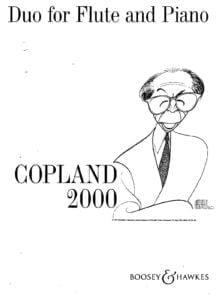
He received more than 30 honorary degrees and many additional awards. His books include What to Listen for in Music (1939), Music and Imagination (1952), Copland on Music (1960), and The New Music, 1900–60 (1968). With the aid of Vivian Perlis, he wrote a two-volume autobiography (Copland: 1900 Through 1942 [1984] and Copland: Since 1943 [1989]).
Best Sheet Music download from our Library.
Browse in the Library:
| Artist or Composer / Score name | Cover | List of Contents |
|---|---|---|
| Unforgettable… The Lighter Side Of Jazz |
 |
Unforgettable… The Lighter Side Of Jazz |
| UNITED – Look To You Guitar Songbook |
 |
|
| Universal Studios Theme by Jerry Goldsmith arr. Yame Puts |
 |
|
| University Musical Encyclopedia The Theory Of Music And Piano Technique (By E Markham) (1912) | Musical Encyclopedia I | |
| Untraceable – Kill With Me – Christopher Young | ||
| Untraceable – Missing Flowers – Christopher Young | ||
| Uomini soli (Pooh) | ||
| Up (Theme) Married Life By Ari Burns (Piano Solo) |
 |
|
| Up The – Married Life (Piano Solo Arr. Sheet Music) | Up The – Married Life (Piano Solo Arr. Sheet Music) | |
| Upon The Wind There Comes A Song (Musescore File).mscz | ||
| Upon The Wind, There Comes A Song Tradition Irish Melody |
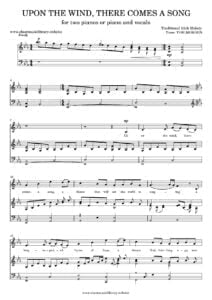 |
|
| Uriah Heep – Sheet Music songbook |
 |
Uriah Heep – Sheet Music songbook (Piano Vocal and Guitar Chords) |
| Urlicht (Gustav Mahler) | ||
| Usher – Make Me Wanna | ||
| Utada Hikaru-First love | ||
| V.S.O.P. Super Jazz Sound Herbie Hancock, Tony illiams,Wayne Shorter, Ron Carter, Freddie Hubbard |
 |
V.S.O.P. Super Jazz Sound Herbie Hancock, Tony illiams,Wayne Shorter, Ron Carter, Freddie Hubbard |
| Valse (Fanfan OST) Nicolas Jorelle | ||
| Valse Crepusculaire (Providence OST) Miklós Rózsa | ||
| Valse Etude – William Gillock Piano Solo Musescore File.mscz | ||
| Valse Op 51 N 1 – Fernando Sor (Musescore File).mscz | ||
| Valzer del Commiato (Il Gattopardo OST) Nino Rota | ||
| Valzer di Lupin (Lupin 3 OST) Franco Micalizzi | ||
| Vampire Weekend Songbook Piano Vocal Guitar Tab |
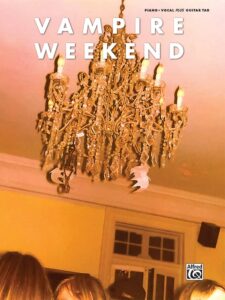 |
Vampire Weekend Songbook Piano Vocal Guitar Tab |
| Van Halen (Van Halen Songbook ) Guitar Full score with TABs |
 |
Van Halen (Van Halen Songbook ) Guitar Full score |
| Van Halen – 1984 Guitar TAB songbook transcribed by Brand McPhail |
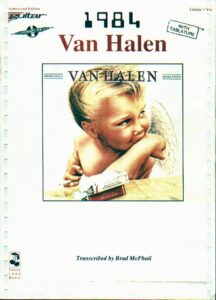 |
Van Halen – 1984 Guitar TAB songbook transcribed by Brand McPhail |
| Van Halen – 5 of the Best Play-It-Like-It-Is Guitar with TABs |
 |
Van Halen – 5 of the Best Play-It-Like-It-Is Guitar |
| Van Halen – Everybody Wants Some The Van Halen Saga (Book by Ian Christe) |
 |
|
| Van Halen – Jump | ||
| Van Halen – Right Now | ||
| Van Halen (Guitar Backing tracks with TABs) Jam with Van Halen – (with MP3 audio tracks to play along) |
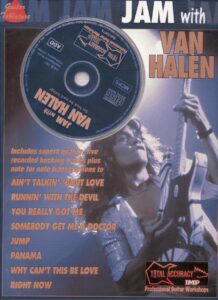 |
Jam with van Halen |
| Van Halen 30 Classics From The Legendary Guitar God (Authentic Guitar Tab) (Authentic Guitar Tab Editions) |
 |
Van Halen 30 classics |
| Van Halen Anthology Guitar songbook with TABs |
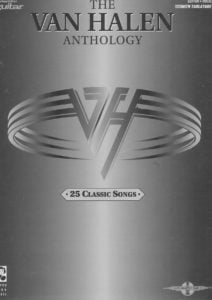 |
Van Halen Anthology Guitar songbook |
| Van Mccoy – Baby Im Yours | ||
| Van Morrison Have I Told You Lately That I Love You (Rod Stewart Ver.) | Van Morrison Have I Told You Lately That I Love You (Rod Stewart Ver.) | |
| Van Morrison The Guitar Collection with TABs |
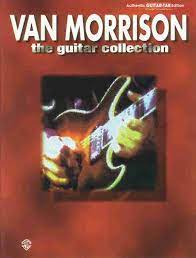 |
Van Morrison The Guitar Collection |
| Van Morrison – Anthology Songbook Piano Vocal Guitar Chords |
 |
Van Morrison – Anthology Songbook Piano Vocal Guitar Chords |
| Van Morrison – Back On Top Book Songbook Piano Vocal Guitar Chords |
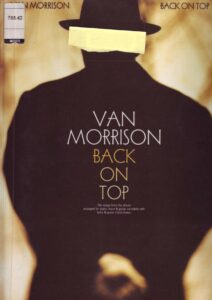 |
Van Morrison – Back On Top Book Songbook Piano Vocal Guitar Chords |
| Van Morrison – Have I Told You Lately That I Love You (Rod Stewart Ver.) (Musescore File).mscz | ||
| Van Morrison – Veedon Fleece Piano Vocal Guitar Chords |
 |
Van Morrison – Veedon Fleece Piano Vocal Guitar Chords |
| Van Morrison Sheet Music Anthology |
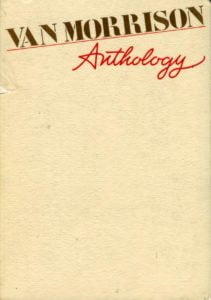 |
Van Morrison Sheet Music Anthology |
| Van(Var) (A Silent Voice) |
 |
|
| Vanessa Carlton – A Thousand Miles | ||
| Vanessa Carlton – Afterglow | ||
| Vanessa Carlton – All I Ask | ||
| Vanessa Carlton – All Is Well | ||
| Vanessa Carlton – Ameriteen | ||
| Vanessa Carlton – Birdie | ||
| Vanessa Carlton – Burden | ||
| Vanessa Carlton – Cest La Vie | ||
| Vanessa Carlton – Dark Carnival | ||
| Vanessa Carlton – Devil Dance | ||
| Vanessa Carlton – Faces | ||
| Vanessa Carlton – Half A Week Before The Winter | ||
| Vanessa Carlton – Last Fall | ||
| Vanessa Carlton – Little Mary | ||
| Vanessa Carlton – Meggie Sue | ||
| Vanessa Carlton – Morning Sting | ||
| Vanessa Carlton – Ordinary Day | ||
| Vanessa Carlton – Papa | ||
| Vanessa Carlton – Pretty Baby | ||
| Vanessa Carlton – Private Radio | ||
| Vanessa Carlton – Put Your Hands On Me | ||
| Vanessa Carlton – Red Ditty | ||
| Vanessa Carlton – San Francisco | ||
| Vanessa Carlton – She Floats | ||
| Vanessa Carlton – Swindler | ||
| Vanessa Carlton – The One | ||
| Vanessa Carlton – The Wreckage | ||
| Vanessa Carlton – This Time | ||
| Vanessa Carlton – Time Is On My Side | ||
| Vanessa Carlton – Twilight | ||
| Vanessa Carlton – White Houses | ||
| Vanessa Carlton – Whos To Say | ||
| Vanessa Carlton – Wonder | ||
| Vanessa Carlton Harmonium Songbook |
 |
Vanessa Carlton Harmonium Songbook |
| Vanessa Williams – Colors Of The Wind | ||
| Vanessa Williams – Save The Best For Last | ||
| Vanessa’s dream – Penny Dreadful OST (Abel Korzeniowski) | ||
| Vangelis Antarctica Guitar Arr With Tabs (1 or 2 Guitars with Tablature) | Vangelis Antarctica Guitar Arr With Tabs (1 or 2 Guitars with Tablature) | |
| Vangelis – Antarctica Guitar arr with TABs (1 or 2 guitars).mscz | ||
| Vangelis – Blade Runner – Piano in an Empty Room |
 |
|
| Vangelis – Chariots Of Fire | Vangelis Charriots of fire | |
| Vangelis – Chariots Of Fire (Guitar with TABs) | Vangelis – Chariots Of Fire (Guitar with TABs) | |
| Vangelis – Conquest Of Paradise | Vangelis – Conquest Of Paradise | |
| Vangelis – Conquest Of Paradise (Musescore File).mscz | ||
| Vangelis – Five Circles from Chariots of Fire (Guitar arr. with Tablature) | Vangelis – Five Circles from Chariots of Fire (Guitar arr. with Tablature) | |
| Vangelis – L’enfant (from The Year of Living Dangerously) (Guitar with TABs) | Vangelis – L’enfant (from The Year of Living Dangerously) (Guitar with TABs) | |
| Vangelis – La Petite Fille De La Mere (from L’Apocalypse des Animaux) (Guitar with TABs) | Vangelis – La Petite Fille De La Mere (from L’Apocalypse des Animaux) (Guitar with TABs) | |
| Vangelis – La Petite Fille De La Mere (Guitar TABs) |
 |
|
| Vangelis – Missing Main Theme From the film Missing (Guitar TABs) | Vangelis – Missing Main Theme From the film Missing (Guitar TABs) | |
| Vangelis – Missing Main Theme From the film Missing (Piano) | Vangelis – Missing Main Theme From the film Missing (Piano) | |
| Vangelis – Prelude |
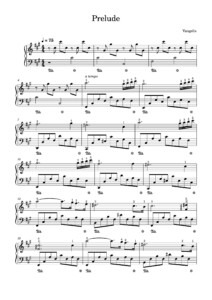 |
|
| Vangelis – The Best Of (piano songbook) |
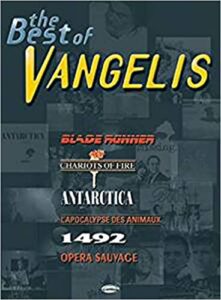 |
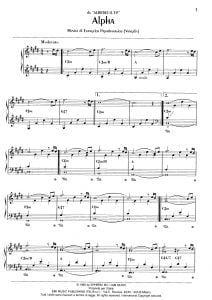 |
| Vangelis Aphrodite’s Child Rain And Tears Guitar |
 |
|
| Vangelis Heaven and Hell Piano Solo |
 |
|
| Vangelis La Petite Fille De La Mer piano solo |
 |
|
| Variations In Merry Go Round Of Life – Joe Hisaishi | Variations In Merry Go Round Of Life – Joe Hisaishi | |
| Vassiliev Konstantin Three Forest Painting Guitar |
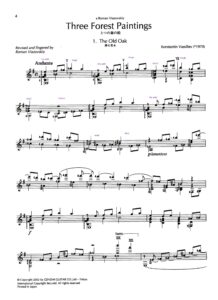 |
|
| Vassiliev, Konstatin Alba (1996) Guitar Sheet Music With Tabs |
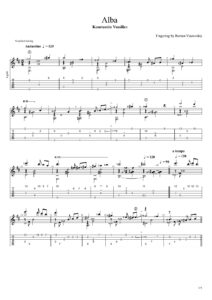 |
|
| Vaughan Williams The Lark Ascending (Violin and Piano Reduction) |
 |
|
| Vaughan Williams – Fantasia On A Theme By Thomas Tallis (Musescore File).mscz | ||
| Vaughan Williams Lark Ascending Piano violin arr. by J. Godderis |
 |
|
| Vaughan Williams On Music Oxford Un. by David Manning (Book) |
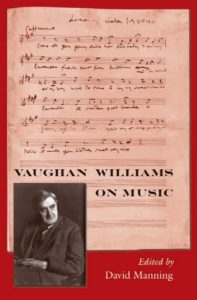 |
|
| Vavilov Vladimir Ave Maria (Wrongly Attributed To G.Caccini) Piano And Two Voices |
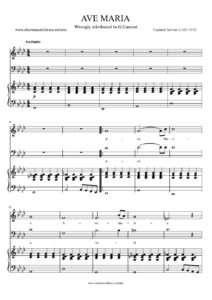 |
|
| Vavilov Vladimir – Ave Maria (Wrongly Attributed To G.Caccini) Piano And Two Voices (Musescore File).mscz | ||
| Vazha Azarashvili – Nocturne |
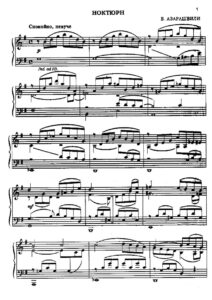 |
|
| Vazha Azarashvili – Nostalgia |
 |
|
| Vazha Azarashvili Sentimental Tango (4 hands piano sheet music) | Vazha Azarashvili Sentimental Tango (4 hands piano sheet music) first page | |
| Vazha Azarashvili Sentimental Tango (piano solo sheet music) | Vazha Azarashvili Sentimental Tango (piano solo sheet music) | |
| Vedrai vedrai (Luigi Tenco) | ||
| Velazquez, Consuelo Amar Y Vivir (Guitarra, Guitar) |
 |
|
| Vengaboys – Boom Boom Boom | ||
| Venice (Only You OST) Rachel Portman | ||
| Verdi Il Trovatore – Anvil Chorus Piano Solo |
 |
|
| Verdi Va Pensiero Piano Solo Arr. Nabucco Acte III Choeur Des Ésclaves Hébreux | Verdi Va Pensiero Piano Solo Arr. Nabucco Acte III Choeur Des Ésclaves Hébreux | |
| Verdi – La Donna è Mobile |
 |
|
| Verdi – La Donna È Mobile (Musescore File).mscz | ||
| Verdi – La Traviatta – Piano Solo arr. |
 |
|
| Verdi – Libiamo Ne Lieti Calici (La Traviata) (Musescore File).mscz | ||
| Verdi – Va pensiero Piano Solo arr. NABUCCO ACTE III Choeur des ésclaves hébreux.mscz |
